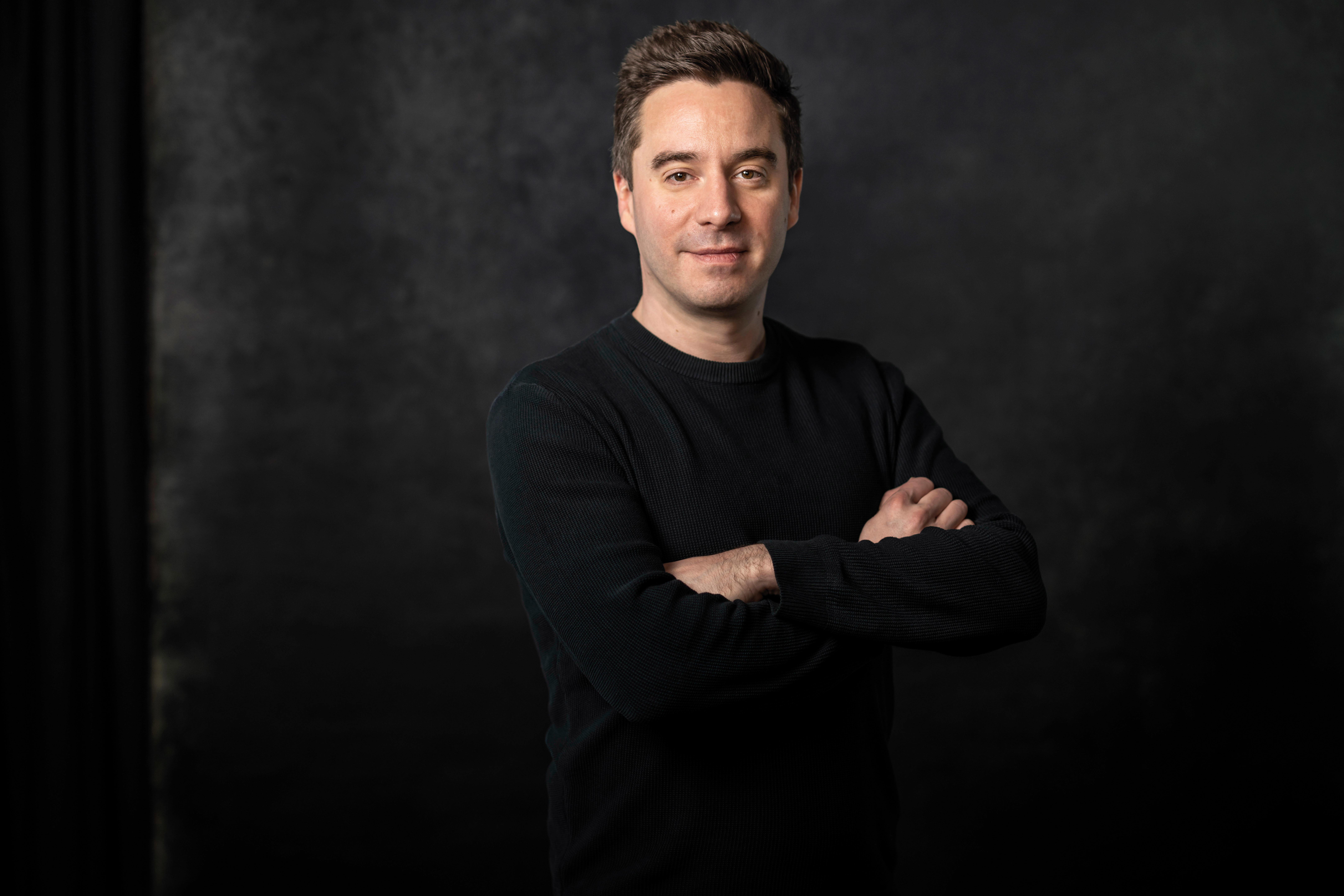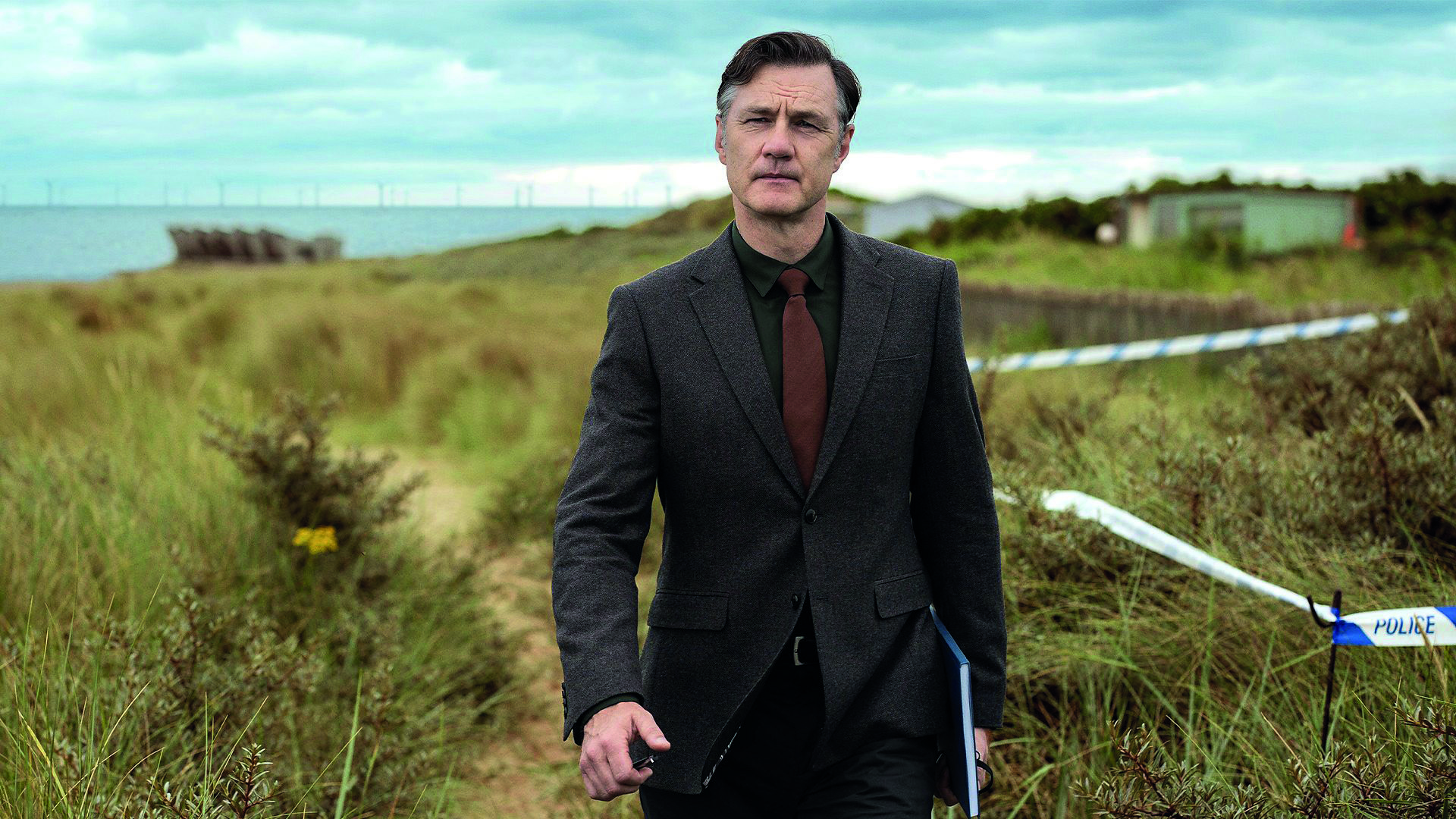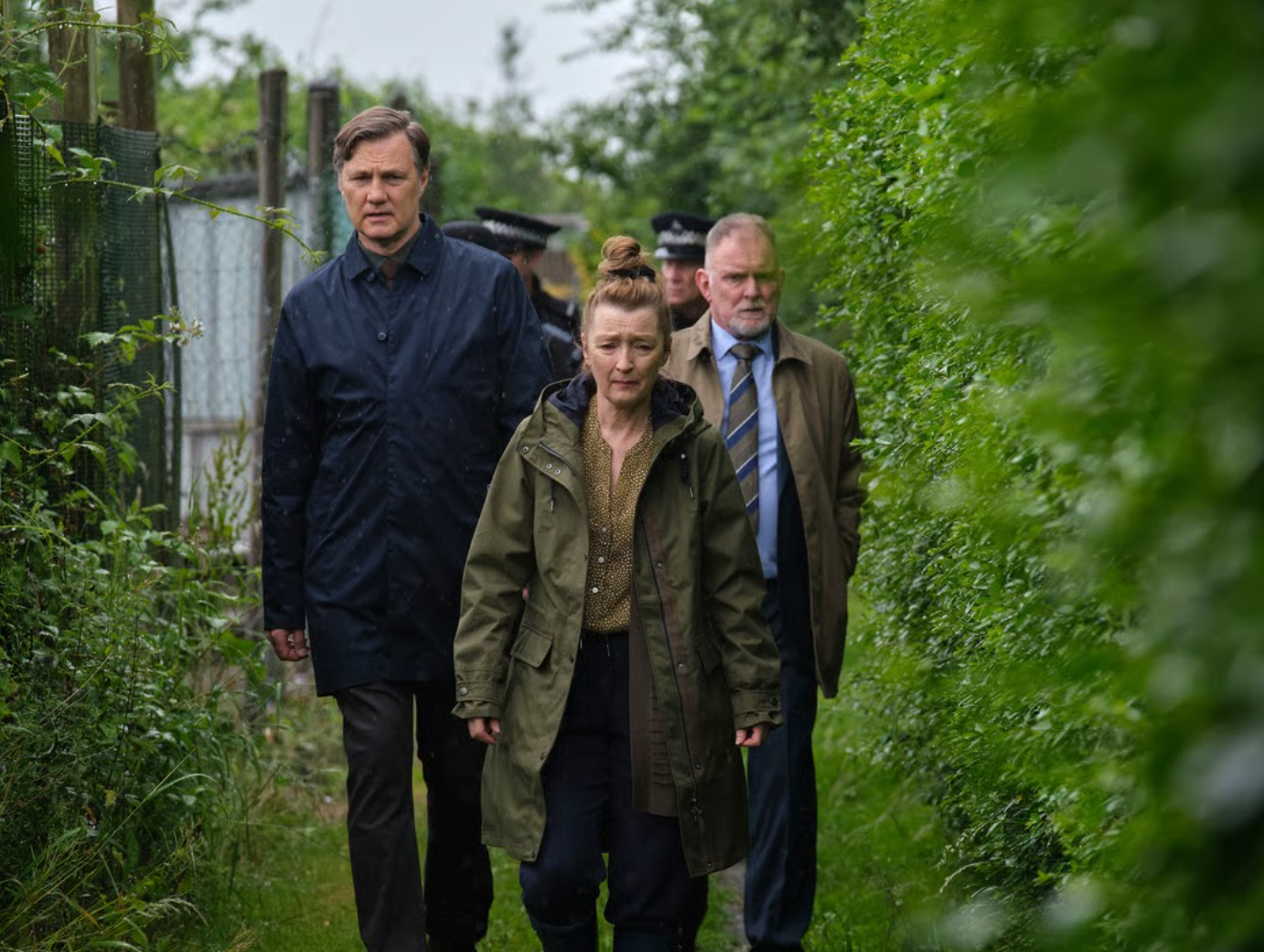James Graham is one of British theatre’s most popular and prolific writers and also the creator of BBC TV drama Sherwood. He was born and brought up in Kirkby-in-Ashfield, in the 1980s -his first job was working the stage door at the Theatre Royal. Twenty years on, James returns to the city with the epic Dear England, a play about football manager Gareth Southgate, which headlines the theatre’s 160th birthday celebrations…

When did you first know you wanted to write a play about Gareth Southgate’s tenure as England manager?
It started during the 2018 Russia World Cup. I’ve always loved watching England, but going back a couple of years before that was the absolute low point of being an England fan for me. We exited tournaments early, it was the era of WAGs and tabloid scandals; the national feeling towards the team wasn’t healthy. But then a new breed of players like Harry Kane, Jordan Pickford and Marcus Rashford all started to emerge and they conducted themselves differently. I think that all came from the character and ethos of Gareth Southgate. The Shakespearean structure of his story also really delighted me. The idea that the guy who was most famous for missing a penalty in 1996, would come back twenty years later and lead them to winning again - and by doing so analyse his own trauma - it really appealed to me.
You spent some time with Gareth while writing the play. What was he like?
Yeah, we met a few times. He was very humble, and quite mortified about being in a play. But he was happy to help me research and understand him and I continue to be just a real fan of his, for both his personality and philosophy. Some people would label his approach as woke and liberal but it’s actually very traditionally English. He got all of his values and his identity from his granddad, who fought in the Second World War and installed in him a sense of goodness and fair play. Immediately when he took over he told his players they weren’t going to dive or use any dirty tactics. He then managed to combine this with a winning mentality and got the best results of any England manager in our lifetimes.
Do you support any of our local teams?
I’m a Forest fan. A couple of years back I got absolutely eviscerated when one of the actors on Sherwood referred to them as Notts Forest on the show. I had to make a public apology on breakfast radio the morning after, and rightly so. Growing up I also used to go and watch Mansfield Town a bit too. But there was something about watching England in those big tournaments that emotionally grabbed me more than club football. There’s a drama and a scale to it. Plus it’s just amazing how it unites football fans both across the city and the nation onto the same side.
No-one should ever become a playwright for their ego as there’s so much rejection involved and so much pain and vulnerability in sharing your work. It's not always going to go well, so you have to keep yourself grounded
You’re in New York as we speak, preparing for the launch of Punch On Broadway. It’s kind of weird that a play about an incident in Nottingham, written and directed by two guys from Nottingham can transfer over there too, right?
When the idea was first mooted, I kept checking with the producers. I was like “Are you absolutely sure you this show set in the Meadows council estate will resonate with American audiences?” Broadway is the home of shows like Wicked and Chicago after all. But they were very reassuring and felt that its themes of justice, grief and forgiveness were universal. The play is about the parents of James Hodgkinson, who was punched by Jacob Dunne on a Saturday night out in Nottingham. It was a single punch, but it killed him. The parents then went on an emotional journey with Dunne, the person who killed their son. They campaigned together against violence, which also helped to release themselves from their own grief.

At what point did you know as a young lad in Notts that you wanted to be a writer?
I suppose I was always creative. I used to enjoy writing stories and drawing comics. But, like most people, the idea of theatre and of being a playwright or writing scripts for TV wasn't really in my world. My mum worked at a warehouse in Annesley and my dad worked for the Council. But a lot of it was down to my school. I was so lucky I went to Ashfield Comprehensive. They had a working theatre in the building and an amazing drama teacher. Every summer and Christmas they would put on big productions. I guess I first got involved through that.
I’ve heard that your old school theatre is actually under threat at the moment, and that you are part of a campaign to save it?
Yeah, it's insane. They're knocking down the old building from the sixties and rebuilding a new version of it on the site. The Department of Education said they were going to build it like for like, and just make it more modern, but for some reason the one building they are not going to replace is the theatre. They don't think a school like that needs it, which is incomprehensible to me. I'm going to do all that I can to support that campaign. It's only just getting started and I'm convinced that once the school year returns, we'll be able to make our case. Eton still has three theatres. Why can’t a comprehensive school in a working class area in the country have one? To me it shows that the government's belief in the value of creative expression and skills has dropped off the list.
I believe your first role working in a theatre was at Nottingham’s Theatre Royal. Can you tell us about that?
Yes, I was the stage door keeper from 2003 to 2004. It was a wonderful grounding in the industry. I was responsible for welcoming all the cast and crew from the shows. I got to see loads of shows and meet loads of interesting people. I was only twenty and I didn't have a clue about professional theatre. But one of my earliest weeks there was looking after Joan Collins, who was in a show called Full Circle. She was very glamorous and every night I had to smuggle her out through a secret door to avoid her being hassled. Danny La Rue was the dame in the panto that year, and I helped him get his Christmas turkey from Marks and Spencer. It was also while working there that I began writing my first full-length play Albert’s Boy.
That play was picked up by the Finborough Theatre in London, where you moved to in a role as playwright-in-residence. What can you tell us about that place?
It's a tiny and beautiful fifty-seat theatre above a pub. Growing up in Nottingham, I'd never heard of it. I also didn't understand how the model of theatre worked down in London, but that experience helped teach me. You've got the commercial sector in the West End and you've got the big, publicly-subsidised theatres like the National Theatre, whose job is to find and encourage riskier work. Then you have something called the fringe, which Finborough was part of. London is full of these really small scale venues in warehouses and basements or above pubs that scrape money together to put on shows. I spent four or five years working in that small venue, working other jobs on the side in bars, warehouses, factories and telecoms, so that I could afford to live. I was staying on friends' sofas and sleeping on blow-up beds and, looking back, having the time of my life. I was also honing my voice and it was when people started writing about my shows in newspapers, and when I first got interest from agents. It all kind of all went from there.
Your first major play was This House which ran at the National Theatre in 2012 and continued for another seven years. What was that about?
The National Theatre commissioned me to write after coming to see some of my smaller plays. It probably sounds boring to some, but it was about the Labour government in the late 1970s and specifically their party whips. It had a couple of great actors in it; Philip Glenister from Life on Mars and Phil Daniels from Quadrophenia. They were both brilliant. There was also a lot of punk and glam rock music from the period involved – Phil Daniels singing Bowie’s Five Years was a definite highlight.
After that in 2014 you ended up working alongside Take That’s Gary Barlow on the Finding Neverland stage show…
Yeah. Gosh, that's over ten years ago now. I'm not remotely musical; I can't sing a note. But I was part of a creative team that adapted the Johnny Depp and Kate Winslet movie about JM Barrie for the stage. I was bought in quite late and had to learn very quickly. I met Gary in his studio in North West London, having been a fan of Take That growing up. It was a very different way to work for me. Obviously, as a playwright most of what you do is a solo endeavor, but musicals are very collaborative and so you work with lyricists, composers and choreographers to build the show. It was definitely a learning curve.

Let’s fast forward to 2017. In that year alone you had four plays being performed around the country, which included Ink (the story of the Murdoch media empire) and Quiz (the story of the Who Wants To Be A Millionaire coughing scandal). That must have been a great year for you personally?
Yeah, I was in my mid mid-thirties, feeling very settled and I was constantly getting work. That’s not something you can guarantee will happen in this industry, so I was very grateful. A particularly big moment came when I had two plays on at the same time in theatres next door to each other in the West End. Those were Ink and Labour of Love: a play that was set in the MPs office in Kirkby-in-Ashfield, starring the amazing actor Martin Freeman as the MP. I was told that hadn’t happened since the days of Oscar Wilde.
I remember walking down that street with my old drama school teacher from Ashfield School and knowing that was a bit special. It's important to check yourself in moments like that, but also not be overwhelmed by it. However, no-one should ever become a playwright for their ego, as there’s so much rejection involved plus so much pain and vulnerability in sharing your work. It's not always going to go well, so you have to keep yourself grounded.
We’ve not even touched on your screenwriting career as of yet. I think the first thing I watched that you’d written was Brexit: The Uncivil War, a Channel 4 drama with Rory Kinnear and Benedict Cumberbatch…
I’d worked with plenty of actors I admired before them, but that was a point where I realised I was working with people who were not just brilliant, but also really famous. Rory Kinnear is just brilliant; one of the UK’s greatest stage and screen actors. Benedict had come straight from the set of Marvel where he’d just had a lead role as Dr Strange in Infinity War. His career in Hollywood was exploding, but he was happy to come and do a tiny independent Channel 4 film playing a balding and challenging man. I got to work closely with him as he always likes to work with the script and the writer. We had lots of conversations and we went to meet the challenging and controversial figure that is Dominic Cummings together several times.

We’d be remiss if we didn’t mention Sherwood here too. What does it feel like to be the showrunner of a prime-time BBC drama, set in your hometown?
I’ve done a fair bit of TV, but it’s the first time I've ever done a big returning series. It means the world to have a big BBC drama set in my hometown, with the voices, characters and politics I grew up with. My brain sometimes doesn’t compute when we’ve got David Morrissey over here and Robert Lindsay over there and it’s all in locations I knew growing up. As well as the content, I'm also really happy that I can bring the business of this to local filming locations, restaurants and hotels. In typical Nottingham style though we do get a fair few complaints about the accents.
I thought some of the accents were pretty good to be honest. For example I felt the Sparrow family completely nailed the north Notts, Mansfield accent.
I think you've highlighted that the challenge we face is of differing perceptions. The accent varies wildly between the north and south of Nottinghamshire. Where I grew up in Ashfield, it’s got really strong Yorkshire tones to it. That's very different to the flat kind of Vicky McClure or Shane Meadow sounds that you get down the Meadows, or West Bridgford. I’ve also had people comment that ‘me duck’ is said too much in it, but where I come from it’s basically every other word. Anyway, these are small gripes. It’s very helpful that Nottingham has the Television Workshop as well. You’ve probably seen that a lot of our cast are from there like Perry Fitzpatrick, Bill Jones, Jorden Myrie, Oliver Huntingdon, and Aisling Loftus. I’m so pleased with that show, and delighted that the third series is now in production.
What’s left for you on your bucket list? Is there anyone you’ve not yet worked with that you’d like to?
Actor-wise, I won't rest until I get to work with Julie Walters. I keep offering her parts, and she's always busy. I recently got to work with Alan Bleasdale, who is basically the scouse Arthur Miller, and he worked with her a lot. I grew up watching those dramas like Jake's Progress, and there's something about what she represents as a British working class woman that I really admire. Hopefully we’ll get her one day.
Dear England, written by James Graham, plays at the Theatre Royal between Tuesday 23 - Saturday 27 September.
You can listen to an audio version of this interview as part of our ‘LeftLion Interviews’ podcast series: leftlion.co.uk/podcasts
We have a favour to ask
LeftLion is Nottingham’s meeting point for information about what’s going on in our city, from the established organisations to the grassroots. We want to keep what we do free to all to access, but increasingly we are relying on revenue from our readers to continue. Can you spare a few quid each month to support us?




